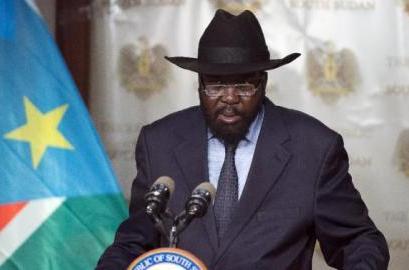South Sudan’s Tonj state governor to head emergency security situation
July 19, 2017 (JUBA) – South Sudan president Salva Kiir has assigned the governor of Tonj state, Aker Tong Aleu, to spearhead the state of emergency situation he declared in Wau, Aweil East, Gogrial and parts of Tonj states.

He said it was an honour to oversee the security situation in the four states for three months. Some of the area where emergency was declared have witnessed significant unrest in past months, mainly communal conflicts in Gogrial, Jonglei and Tonj states.
Observers have, however, interpreted the order to mean an attempt by the president to deter supporters of the former chief of staff Paul Malong Awan from resorting to armed opposition in protest over the manner in which he was treated.
Awan remains under confinement since he returned to capital, Juba, after he abruptly left immediately following the announcement of his removal from the position. All his supporters in the military and other key institutions have been removed from influential positions and placed under strict security surveillance.
Kiir on Tuesday convened an emergency meeting of the national security committee in the capital, Juba a day after declaring a state of emergency in parts of the country.
The meeting followed the communal clashes in four states. The state of emergency covered parts of Aweil East, Wau, Gogrial and Jonglei states.
The order did not mention which specific places in the state were affected. It not known which areas will be affected since such a declaration is usually followed by the introduction of special measures such as increased powers for the police or army, usually connected to civil unrest or natural disasters like earthquakes.
Martial laws apply for civil unrest in the area and in most cases, the measures affect operations of local schools and other economic activities since it hampers movement.
(ST)
